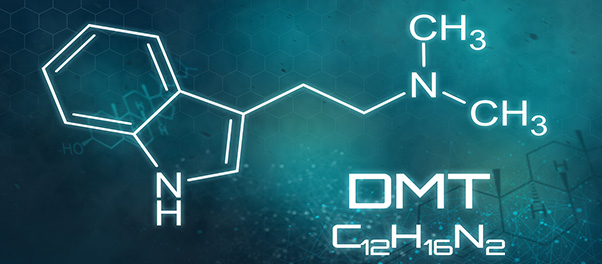What Is DMT and How Does It Function?
DMT is a naturally occurring compound classified under psychedelic drugs. It is found in various plants and animals and is known for producing intense but short-lived psychedelic experiences. In the brain, DMT function is linked to serotonin receptors, particularly the 5-HT2A receptor, contributing to altered perception, cognition, and emotion. This neurochemical interaction is key to understanding DMT's therapeutic applications.
DMT Therapy and Its Effects on Depression
DMT has been used for centuries in spiritual and healing rituals by various cultures around the world. Notably, it is the primary psychoactive ingredient in ayahuasca, a sacred brew traditionally used in ceremonial practices by the Indigenous Quechua people of South America.
Today, alongside other psychedelic compounds such as LSD, psilocybin, MDMA, and ketamine, DMT is gaining increasing attention in the scientific community for its potential as a treatment for depression and other mental health conditions.
Unlike traditional antidepressants, which can take weeks to show effects, DMT treatment often produces rapid and meaningful shifts in mood and cognition. Preliminary clinical trials are exploring the use of DMT-assisted therapy as a potential treatment for depression. This approach involves administering a carefully controlled dose of the psychedelic compound DMT in a supervised clinical setting, typically combined with traditional talk therapy. Although research remains in the early stages, initial findings suggest that DMT therapy may offer significant benefits for individuals experiencing persistent or treatment-resistant mental health challenges.
Benefits of DMT in a Therapeutic Setting
The benefits of DMT therapy include:
- Rapid symptom relief in depression
- Emotional processing and catharsis
- Enhanced insight into behavioral and thought patterns
- Potential to reset maladaptive brain circuits
How Long Does a DMT Treatment Last?
One of the unique aspects of DMT psychedelic therapy is its brevity. A typical DMT treatment session lasts between 15 to 60 minutes, far shorter than other psychedelic therapies like psilocybin or LSD. However, the therapeutic impact may unfold over days or weeks following the session, often guided by a trained DMT therapist.
What Is the DMT Experience Like?
The subjective effects of DMT vary widely from person to person, reflecting individual differences in perception and psychological makeup. Despite this variability, themes have emerged from anecdotal reports and early clinical observations. Individuals often describe visual hallucinations, altered sensory perception, and a sense of separation from the physical body. Many also report encountering a perceived "presence" or "entity," which may be interpreted as a guide, helper, or a broader sensation of benevolence or insight.
These experiences frequently carry a deeply autobiographical quality, allowing individuals to revisit personal memories or emotional themes with newfound clarity. This can promote meaningful psychological insight and emotional breakthroughs.
From a neurobiological perspective, DMT seems to disrupt rigid, maladaptive neural patterns linked to internalizing disorders such as depression and addiction. By temporarily loosening these entrenched networks, DMT may enhance psychological flexibility, making individuals more open to psychotherapy. Consequently, patients often report gaining fresh perspectives and an increased capacity to process and resolve underlying emotional difficulties that had previously been inaccessible through conventional treatment methods.
The Role of the DMT Therapist
In DMT-assisted therapy, the therapeutic process is just as essential as the pharmacological effects of the psychedelic itself. This treatment must occur in a controlled clinical setting under the supervision of a specially trained psychotherapist, whose involvement is critical before, during, and after the DMT session. A qualified DMT therapist ensures not only physical and emotional safety but also facilitates the psychological integration necessary for lasting therapeutic change.
Before the session, the therapist meets with the patient to build rapport, clarify expectations, and collaboratively set therapeutic intentions. During the session, conducted in a carefully designed, calming environment, the therapist remains present as a supportive and grounding figure, helping the patient navigate any challenging experiences that may arise. Afterward, the therapist plays a central role in integration therapy, guiding the patient through a process of meaning-making, emotional processing, and applying insights to long-standing cognitive or behavioral patterns.
While the psychedelic compound may catalyze deep insight, it is the structured involvement of a skilled therapist that transforms these insights into meaningful, sustained outcomes. As interest in psychedelic therapies grows, training standards and ethical frameworks are rapidly evolving, making it essential for clinicians to stay informed and adequately prepared to deliver this emerging form of care.
Conclusion
For mental health professionals exploring DMT treatment, it is vital to balance curiosity with clinical responsibility. While DMT therapy is not yet approved for widespread clinical use, the growing body of research on DMT effects on depression indicates significant potential. Clinicians should follow emerging studies, seek training through credible psychedelic therapy programs, and advocate for ethical, evidence-based practices as the field evolves.
As public interest in psychedelic drugs like DMT grows, mental health providers are uniquely positioned to lead the conversation with scientific integrity and compassionate care.








